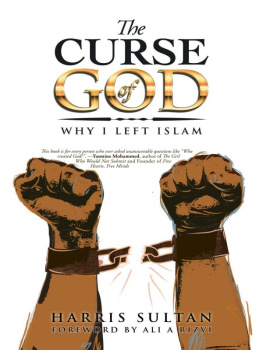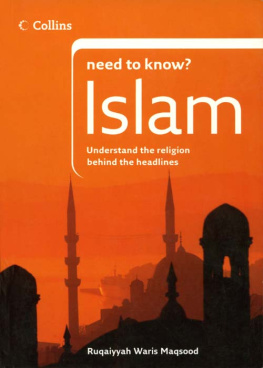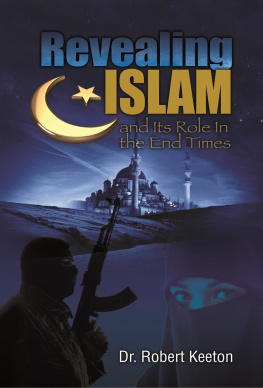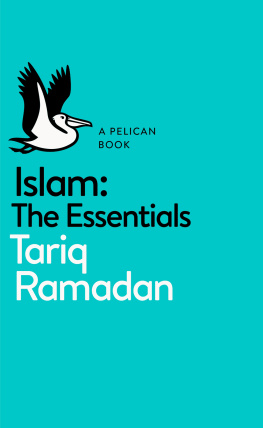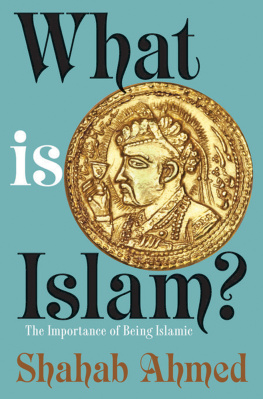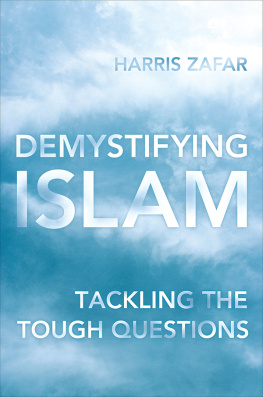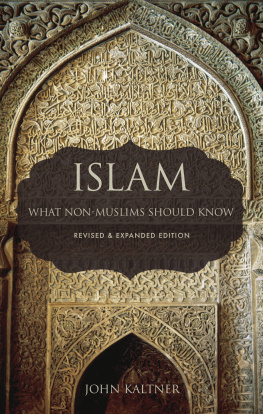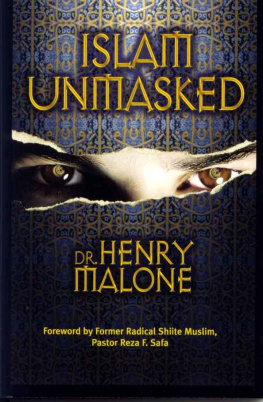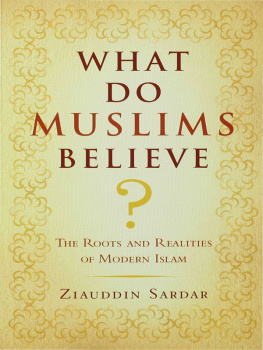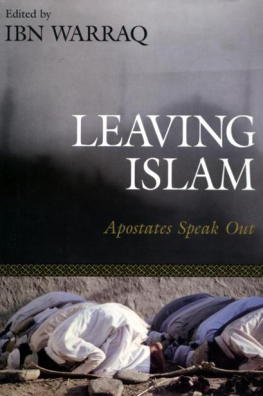
Th is book is for every person who ever asked unanswerable questions like Whocreated God?.Yasmine Mohammed, author of Th e GirlWho Would Not Submit and Founder of Free
Hearts, Free Minds
In this searingly honest account, Harris does not attempt to answer these questionsfor you, but he does, unequivocal y, assert that the answers you were given werelies. The Curse of God outlines how this lie has plagued humanity for way toomany years. Its time we dispel with these dangerous myths and start to focus ourenergies on each other instead of on imaginary friends in the sky.
Yasmine Mohammed, author of The Girl Who Would Not Submit and Founder of Free Hearts, Free Minds
THE CURSE OF
GOD
WH y i l e f t i s l a m
H a r r is sulta n
Copyright 2018 by Harris Sultan.
Library of Congress Control Number:
2018910635
ISBN:
Hardcover 978-1-9845-0213-1
Softcover
978-1-9845-0212-4
eBook
978-1-9845-0211-7
All rights reserved. No part of this book may be reproduced or transmitted in any form or by any means, electronic or mechanical, including photocopying, recording, or by any information storage and retrieval system, without permission in writing from the copyright owner.
Any people depicted in stock imagery provided by Getty Images are models, and such images are being used for illustrative purposes only.
Certain stock imagery Getty Images.
Rev. date: 12/19/2018
Xlibris
1-800-455-039
www.Xlibris.com.au
777523
Contents
Chapter 1
Chapter 2
Chapter 3
Chapter 4
Chapter 5
Chapter 6
Chapter 7
Chapter 8
Chapter 9
FOREWORD FOR THE CURSE
OF GOD by Ali A. Rizvi
We have all heard of lapsed Catholics from magazine articles and stand-up comedians. In the Jewish community, secular Jews are almost the default. Former Hasidics are featured in award-winning Netflix documentaries. Ex-Scientologists frequently score lucrative book and TV deals.
What, then, of the ex-Muslim? Is it really reasonable to assume that the worlds second largest religious community numbering over 1.6
billion is the only one that hasnt produced any significant number of freethinking individuals who favour reason over faith, and morality over piety?
Of course it isnt. Yet while lapsed Catholics, ex-Hasidics, and ex-Scientologists are embraced even celebrated ex-Muslims are somehow dismissed as a fringe faction, as Islamophobic native informants, or as self-hating traitors who are party to the demonisation of Muslims by the anti-Muslim populist far-right.
This, dear readers, is bigotry. It assumes that Muslims are uniquely unable to tolerate dissent, satire or even dialogue. This book, then, is much more than just a riveting account of why a once-believing young Muslim man lost his faith in pursuit of truth and moral consistency; it is also an opportunity for Muslims to engage in the kind of dialogue they are widely thought to be incapable of.
ix
All of us who live in liberal Western democracies are beneficiaries of the Age of Enlightenment. Our fundamental values and rights of free expression, individual liberty, equal rights and democracy are the result of courageous freethinkers who challenged the European theocracies and religious orthodoxies of their time. So brutal and powerful were these regimes that they make todays Islamic State look like amateurs.
Thomas Jefferson, who incorporated these enlightenment ideals into the U.S. Declaration of Independence, is famously known to have taken a razor blade to the Bible, stripping it of all supernatural claims and superstition. Rather than building a nation on the basis of Judeo-Christian values, as some erroneously claim, Americas founding fathers did quite the opposite: they founded their nation as a deviation from Judeo-Christian values. The First Amendment of the U.S. Constitution throws up a wall between religion and state, while guaranteeing free speech and free expression.
Today, this Age of Enlightenment is dawning again in the Muslim world.
Like Voltaire, Rousseau and Jefferson, countless young men and women across the worlds Muslim communities are openly questioning the religion of their parents and organising as they never could before. Just as the advent of the printing press opened up the contents of a once-opaque Bible to the average person, the Internet has made the contents of the Quran transparent to any pre-adolescent child with basic Google skills. When I grew up in the 1980s, we had a Quran on the top of a bookshelf in the living room. It was in a language we didnt understand, and it could not be touched, much less opened or read, without a purification ritual called wudhu. Most Muslims, while revering the book as sacred, had no more than a vague familiarity with its contents.
For those of us who did wish to read and understand it, finding all of the verses related to a certain topic took hours of perusal and bookmarking, preferably of a translation that was acceptable to most Muslims (most werent). In contrast, today children can conduct keyword searches x
of the entire Quran by topic, compare dozens of translations side by side, delve into etymology, grammar and syntax, and share everything theyve learned with their friends in minutes.
Why dont we hear about it then? The answer to this question is as simple as it is unfortunate. The few who have dared to speak out in Muslim-majority countries have had to bear dire consequences.
My friend Raif Badawi continues to be imprisoned in Saudi Arabia, separated from his wife and children for over six years as of this writing.
His crime? Blogging about the separation of religion and state in his country. The charge? Insulting Islam. Secular bloggers like Avijit Roy in Bangladesh have been hacked to death with machetes in broad daylight for writing a book challenging religion and promoting science and rationality. Iran executed the 37-year-old Mohsen Amir Aslani in 2014 for questioning the story of Jonah (Yunus in the Quran) and the big fish he allegedly lived in. Mashal Khan was lynched to death by a mob of university students yes, university students, who killed him openly on campus for, among other things, asking questions about Adam and Eve. This is just a superficial sampling of the people who have stepped up to speak openly. There are many more we never hear of. And there are still more that dont bother speaking up in the first place. You may now understand why. Thirteen countries in the world currently punish atheism with death. All are Muslim-majority. Even in countries where the government doesnt get you, the mob will.
Recently, Muslim governments have begun to crack down harder on the non-believers in their populations. Saudi Arabia has declared atheism to be a terrorist offense. Malaysia has announced its intention to actively hunt down atheists. Pakistan is doubling down on its blasphemy laws, trying to get everyone, from the UN to YouTube, to support them.
Similar crackdowns are underway in Iran and Egypt.
This sounds like bad news until you ask yourself why.
Why the crackdown? Why the desperation?
xi
It is in the answer to these questions that one finds encouragement: apostasy is on the rise in unprecedented numbers in the Muslim world.
In this book, you will read about these numbers, which as eye-opening as they may be are almost certainly under-reported because of the dire risks and consequences involved. Even in the United States, a recent Pew Research poll found that almost a quarter of children born to American Muslim families no longer identify with the faith.
Next page
